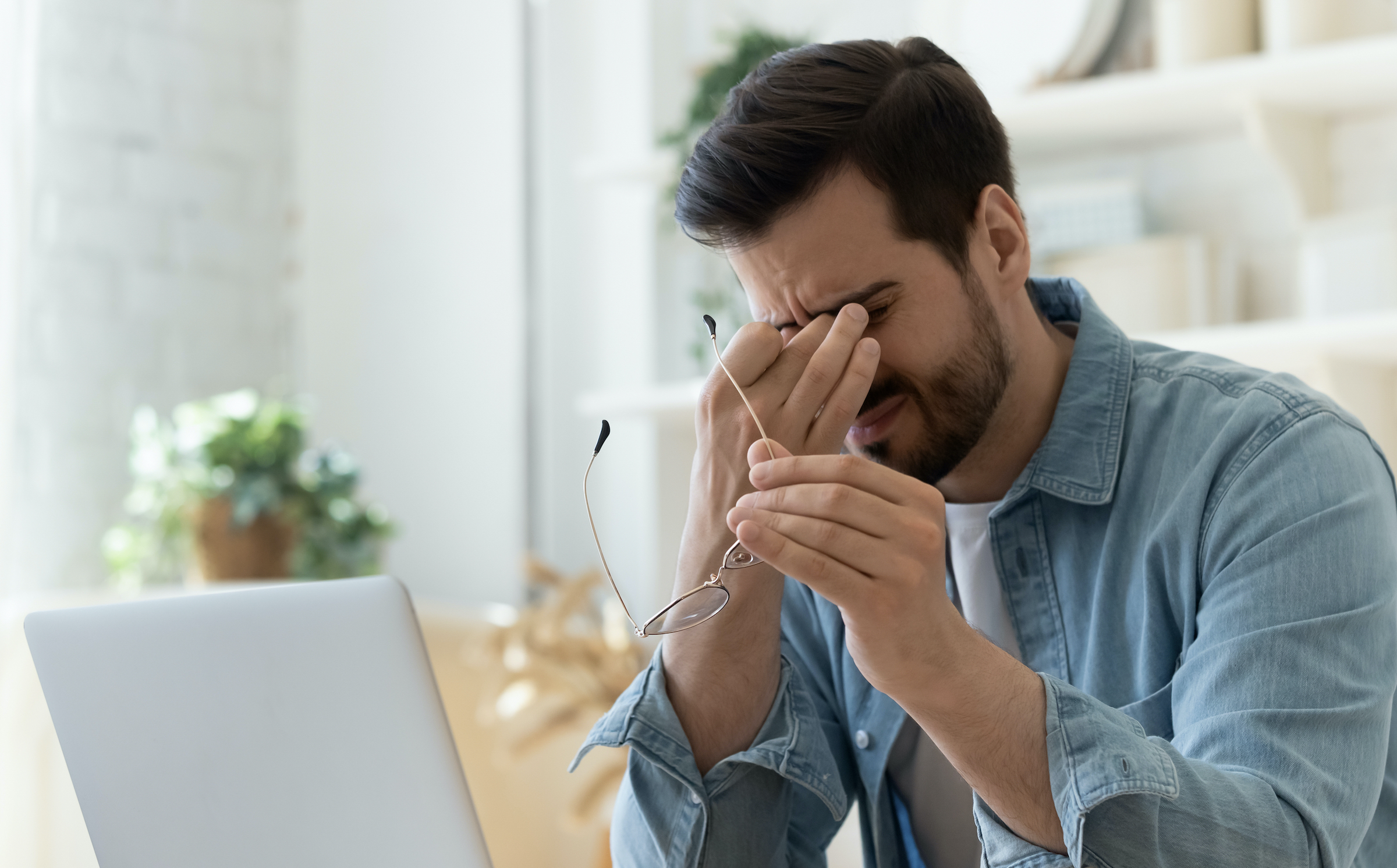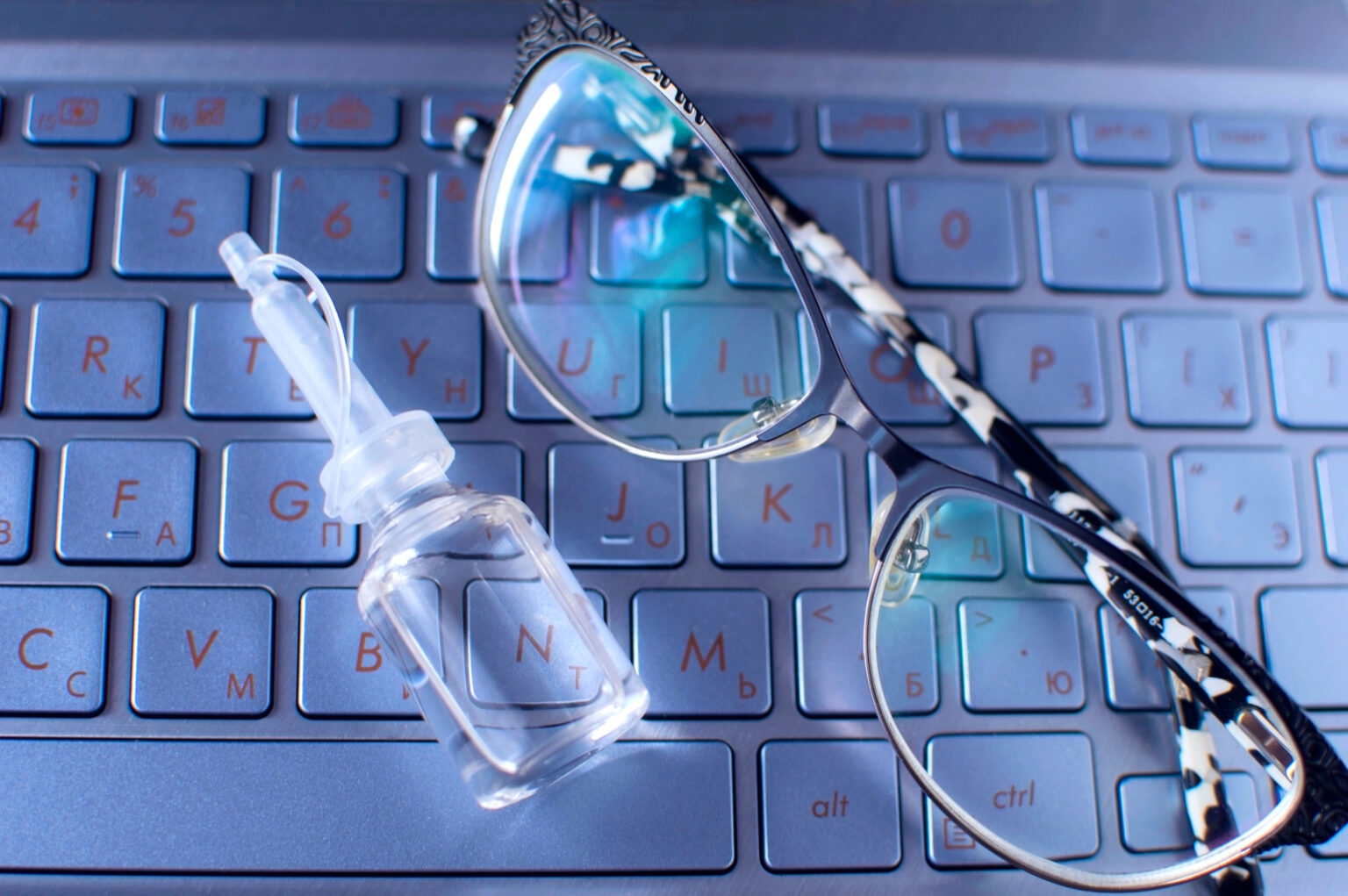Dry eye is a common eye condition that occurs when there is an issue with the tear production system of your eyes. It can happen when your eyes don’t produce enough tears or when the tears evaporate too quickly.
This can lead to discomfort, irritation, and in some cases, vision problems. While it may seem like a minor inconvenience, dry eye can significantly impact your quality of life and vision quality if left untreated.
At Atlantic Eye Institute in Jacksonville, Florida, our eye doctors are committed to providing patients with the best possible care for dry eye.
To understand dry eye, it’s essential to know about the tear film. The tear film is a thin layer of fluid that covers the surface of your eye.
This part of your eye plays a crucial role in maintaining eye health and clear vision. The tear film helps keep your eyes moist, protects against infections, and ensures a smooth optical surface for clear vision.
The tear film is composed of three distinct layers, each with its own important function:
This is the layer that is closest to the eye’s surface. It helps spread the tear film evenly across the eye.
This middle layer of the tear film is mostly water and contains essential nutrients and proteins. It nourishes the cornea.
This outermost layer is oily and helps prevent evaporation of the tear film. It also helps the tears spread smoothly over the eye’s surface.
When any of these layers are compromised, it can lead to dry eye symptoms.
Dry eye can cause various symptoms, which can range from mild to severe. Some of the most common symptoms include:

At Atlantic Eye Institute, our eye doctors use a combination of methods to diagnose dry eye. The process typically begins with a comprehensive eye exam and a discussion of your symptoms and medical history.
They may also perform specialized tests to evaluate your tear production and quality. Some of the tests your eye doctor might use include the Schirmer’s test, which measures the amount of tears your eyes produce.
They may also conduct a tear break-up time (TBUT) test to assess how quickly your tears evaporate. In some cases, your eye doctor might apply a special dye to your eye for corneal staining, which reveals any damage to the cornea’s surface.
Additionally, they often perform a meibomian gland evaluation to examine the glands that produce the oily part of your tears. These tests, combined with a thorough examination of your eyes, help your eye doctor determine the severity of your dry eye.

Determining the root cause of your dry eye symptoms is one of the most important steps in developing an effective treatment plan. There are many possible causes of dry eye symptoms.
Some causes may cause temporary symptoms, whereas others can create a chronic condition. Some common causes include:
Your Jacksonville dry eye specialist will work with you to uncover the cause of your dry eye and help improve your symptoms.
At Atlantic Eye Institute, our dry eye specialists offer a range of treatments for dry eye tailored to each patient’s specific needs. Our goal is to relieve your symptoms and address the underlying causes of your dry eye.
Here are some of the advanced treatments available at Atlantic Eye Institute:
Cequa is a prescription eye drop that contains cyclosporine, an immunosuppressant that helps increase your eyes’ natural ability to produce tears. It works by reducing inflammation in the tear glands, allowing them to function more effectively. Cequa is particularly useful for patients with chronic dry eye and has shown significant improvements in tear production.

Klarity-C is a preservative-free cyclosporine medication. Like Cequa, it works to increase tear production by reducing inflammation in the tear glands. The preservative-free formula makes it an excellent option for patients who are sensitive to preservatives commonly found in other eye drops.
Vevye & Miebo Vevye and Miebo are newer additions to our dry eye treatment options. These medications work through different mechanisms to alleviate dry eye symptoms.
Vevye is a calcineurin inhibitor. It reduces inflammation in the eyes by suppressing the activity of calcineurin, a protein involved in the inflammatory process. This reduction in inflammation helps stimulate tear production, addressing the underlying cause of dry eye.
Miebo works by forming a protective layer over the tear film. This helps prevent tear evaporation, keeping the eyes moist for longer periods. By maintaining eye moisture, Miebo helps protect against irritation and infection while reducing common dry eye symptoms such as burning, itching, and the sensation of having a foreign object in the eye.
Tyrvaya is an innovative nasal spray treatment for dry eye. It helps to stimulate natural tear production through a mechanism different from traditional eye drops. Since it works differently, Tyrvaya can be an effective option for patients who haven’t found relief with other treatments.
Xdemvy is a specialized treatment for Demodex blepharitis, an inflammatory eye condition that affects the eyes and eyelids. Unlike traditional dry eye treatments, Xdemvy targets demodex mites directly. By eliminating the root cause of the condition, Xdemvy effectively reduces inflammation and associated symptoms.
For more severe cases of dry eye, particularly those involving damage to the eye’s surface, our eye doctors may recommend amniotic membrane treatment. Products like Prokera Slim and BioD use tissue from the amniotic membrane (the innermost layer of the placenta) to promote healing and reduce inflammation on the eye’s surface.
In some cases, our eye doctors may recommend therapeutic contact lenses such as scleral lenses or bandage contact lenses. Scleral lenses are large-diameter lenses that create a fluid-filled layer over the cornea, providing constant hydration and relief for severe dry eye. Bandage contact lenses can protect the cornea and help it heal in cases of severe irritation or damage.